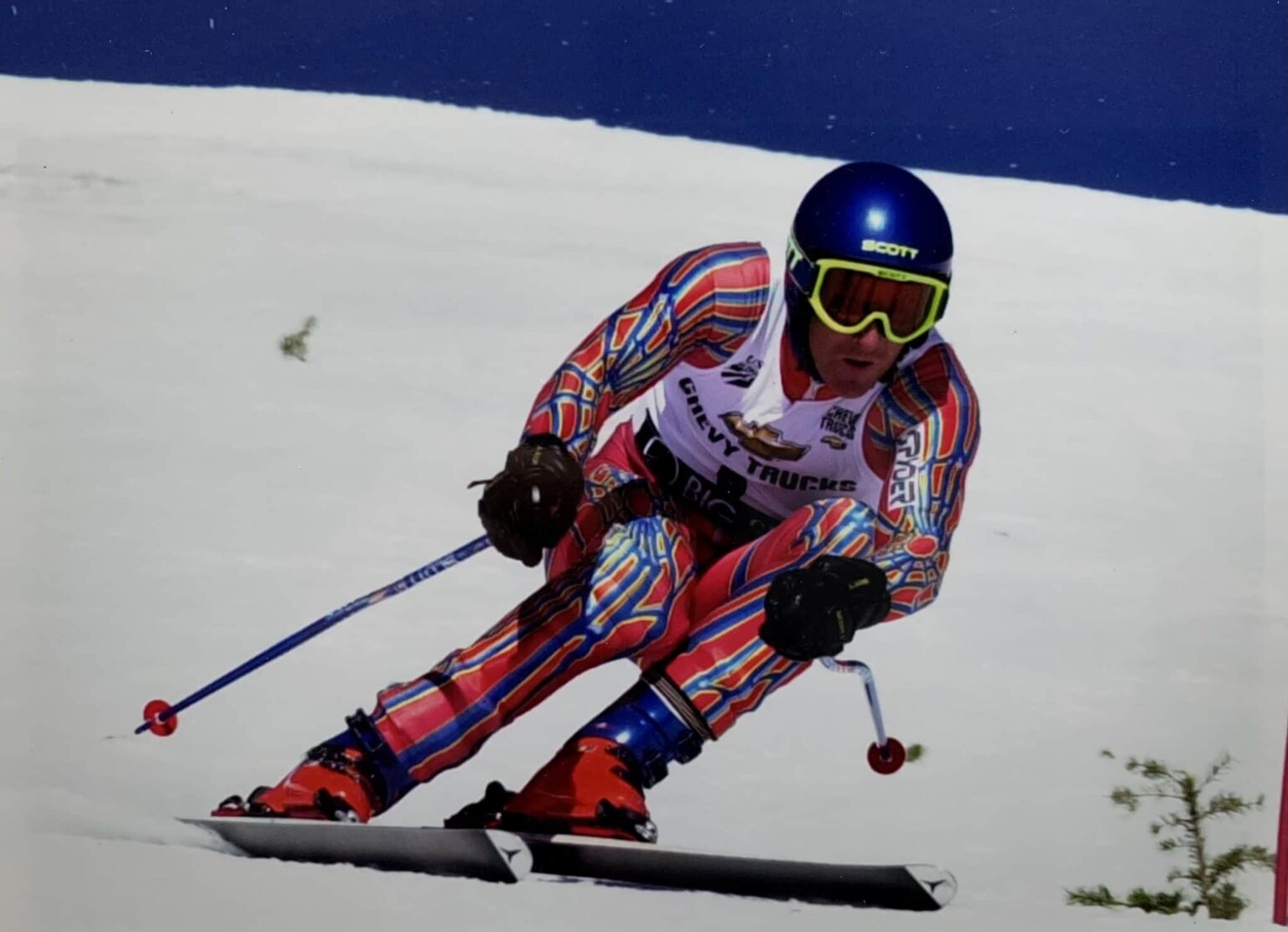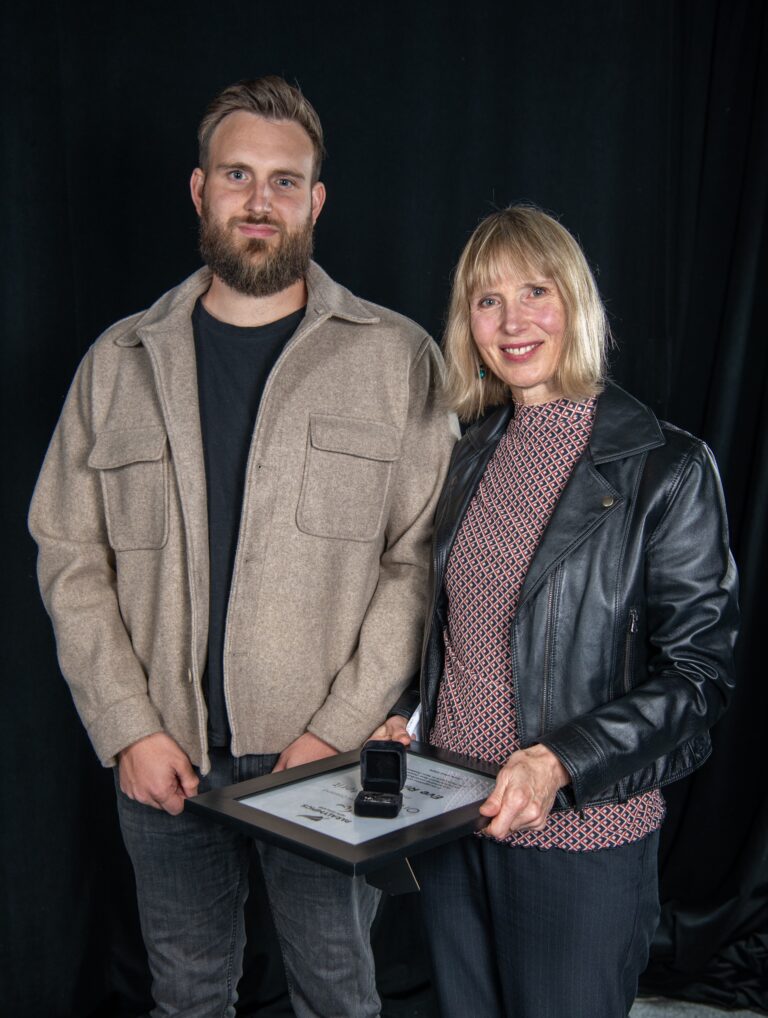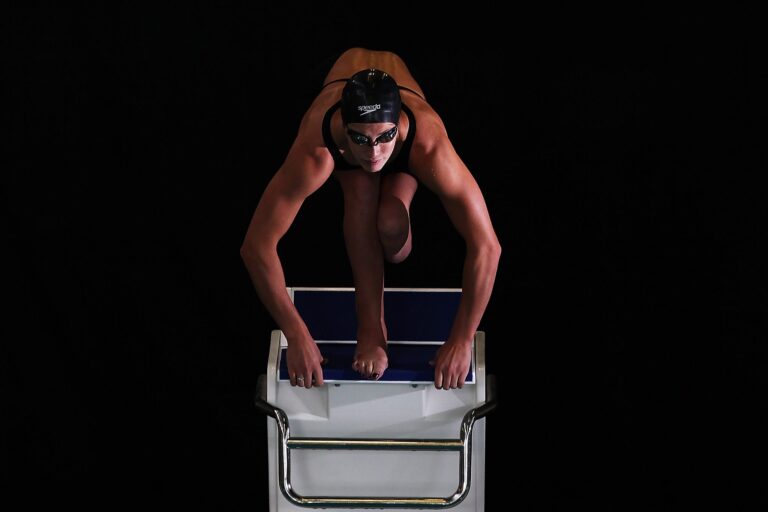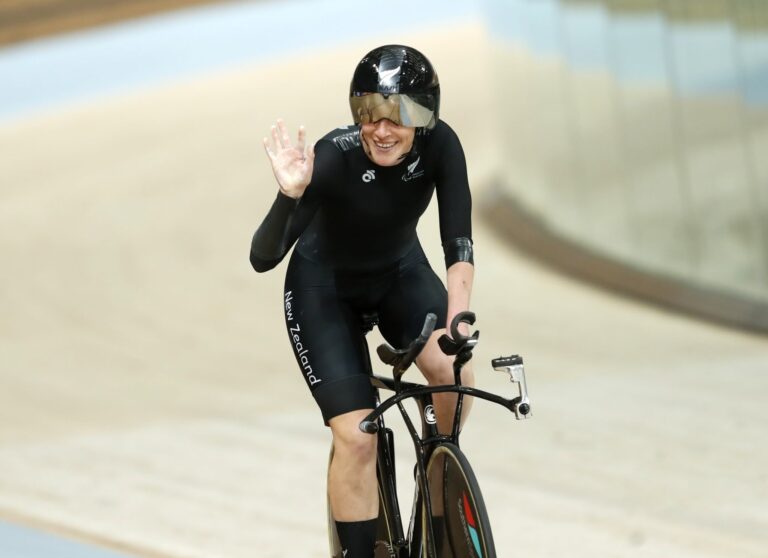The morning after his amputation, Steve Bayley woke up and made a rather bold statement: “I can go to the Paralympics now!“
They were words that were more a reflection of his abundant positive energy and self-talk than any knowledge about Para skiing. “I didn’t even know how, what sport or anything. It was just my attitude right from day one,“ Bayley, now 49, recalls.
Within four years, he would be winning medals for New Zealand on the slopes; bronze at the Nagano 1998 Paralympic Winter Games, then two more bronzes and a gold at Salt Lake City 2002.
The man who would become Paralympian #115 had been a recreational skier all his life before losing part of his foot, requiring a below-the-knee amputation, in a 1994 car accident driving down from the Porter Heights ski-field where he worked.
He’d grown up on skis at Mt Olympus — on Glenthorne Station in the Craigieburn Range, an off piste club field that his grandfather had helped establish in 1932.
“My grandfather had taken his own kids there, then my dad took us from when we were very small. I was born in June, so I think I was up there a couple of months later as a baby with my mum.“
They were a farming family from Birdlings Flat, near Christchurch, the perfect locale for an active, outdoorsy lifestyle. Bayley was into cycling, kayaking and of course skiing. Just four months after his amputation, he got back on skis during a family holiday to Whistler, Canada, although he still needed a walking stick at the time.
“Even though I couldn’t ski as fast as I used to, I found I could ski all day without any problem, and it was just such an amazing feeling. The following year, I went back to visit my ski buddies and instructors at Porter Heights. One of them said, ‘Well why don’t you try disabled skiing?’ So I did some research, found out about the nationals and the New Zealand clubs, joined up and that’s where it all started.“
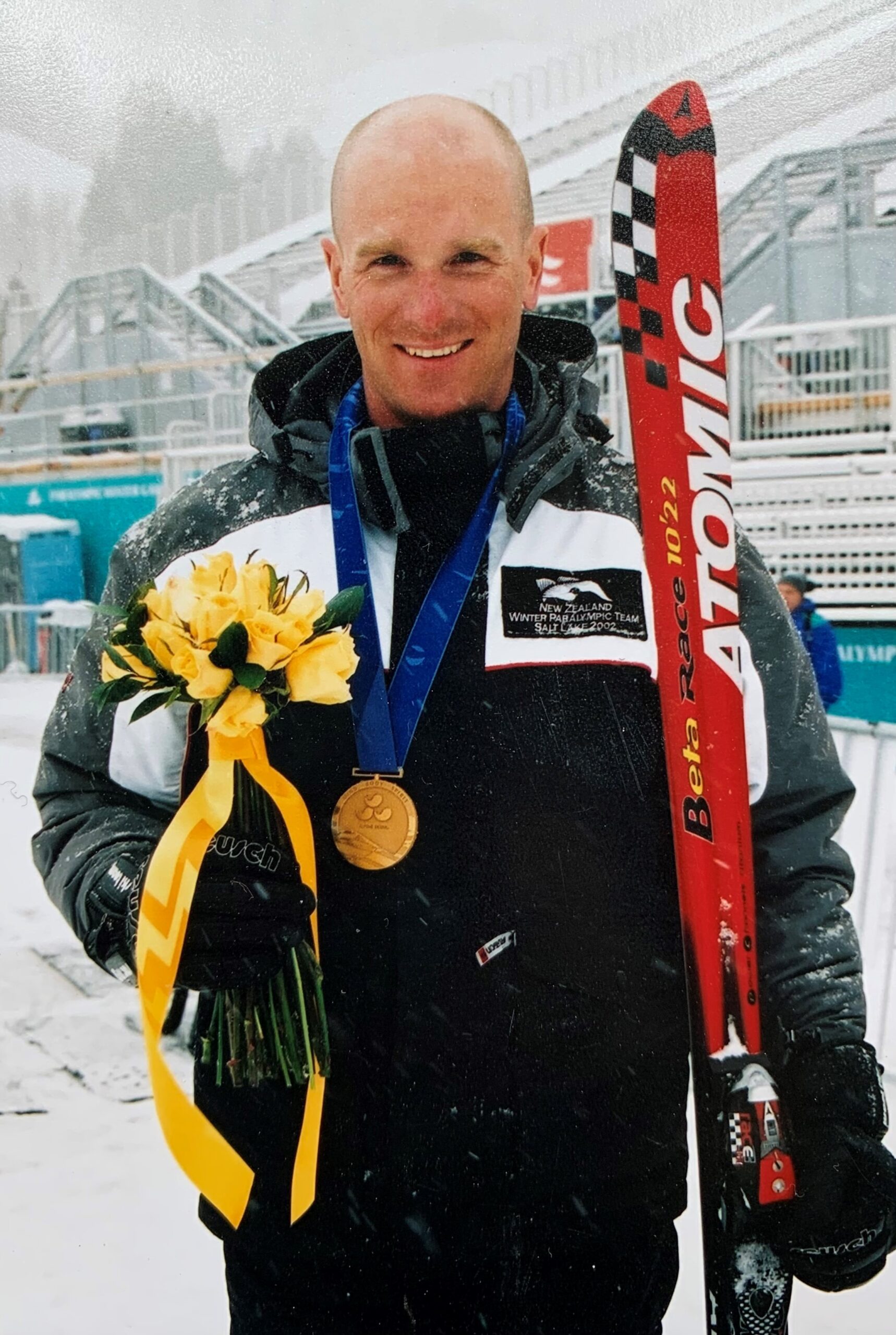
Disabled Skiing Canterbury and Westland ran twice-weekly winter trips up to Mt Hutt. “That’s where I started meeting people. ParaFed Canterbury gave me early support as well; great organisations.“
By 1996 he was on the national development team, deploying a reinforced ski prosthesis that fits into a standard ski boot. He was also fortunate to be financially independent enough to be able to pursue his new direction overseas, spending up to five months of the year based at Winter Park, Colorado, a development hub of the USA disabled ski team.
“We would travel and race with them, around the States, Canada sometimes, then the Para alpine skiing world circuit in Austria, Switzerland, France. I guess I had become quite a good skier over the years but until I lost my foot, I’d had no real formal training. I remember the first day I turned up at Winter Park as a Para alpine skier and they took us up for a run. I was doing my hot moves and they said, ‘Right, forget everything you’ve ever learned and we’ll try and turn you into a racer — all you need to do is completely change your skiing style.“
It was daunting, but fun, he says. Sport turned out to be a key cog in his recovery journey, mentally, as well as giving him back a sense of no-bounds physical freedom.
“Even before I got onto prosthetics, I went indoor rock-climbing with two arms and a leg, and kayaking after I modified my kayak to make it easier for me to control. I never really considered that not having a foot was going to change what I do: I just thought I would adapt and change and keep doing the things I loved doing.“
What he hadn’t been prepared for was the surreal experience of walking out with the New Zealand Paralympic Team on the opening days of the Nagano 1998 and Salt Lake City 2002 Paralympic Winter Games.
“Despite having been to a few World Cups by then, to have 30,000 people waving and cheering with flags was quite an amazing, eye-opening moment.“
New Zealand’s comparatively small group of Para alpine skiers punched above its weight at both Paralympic Games. Bayley won the Giant Slalom bronze in Nagano 1998 and was thrilled to come home with a fist full of medals from Salt Lake City 2002 — gold for the Giant Slalom and bronzes for the Downhill and Super G.
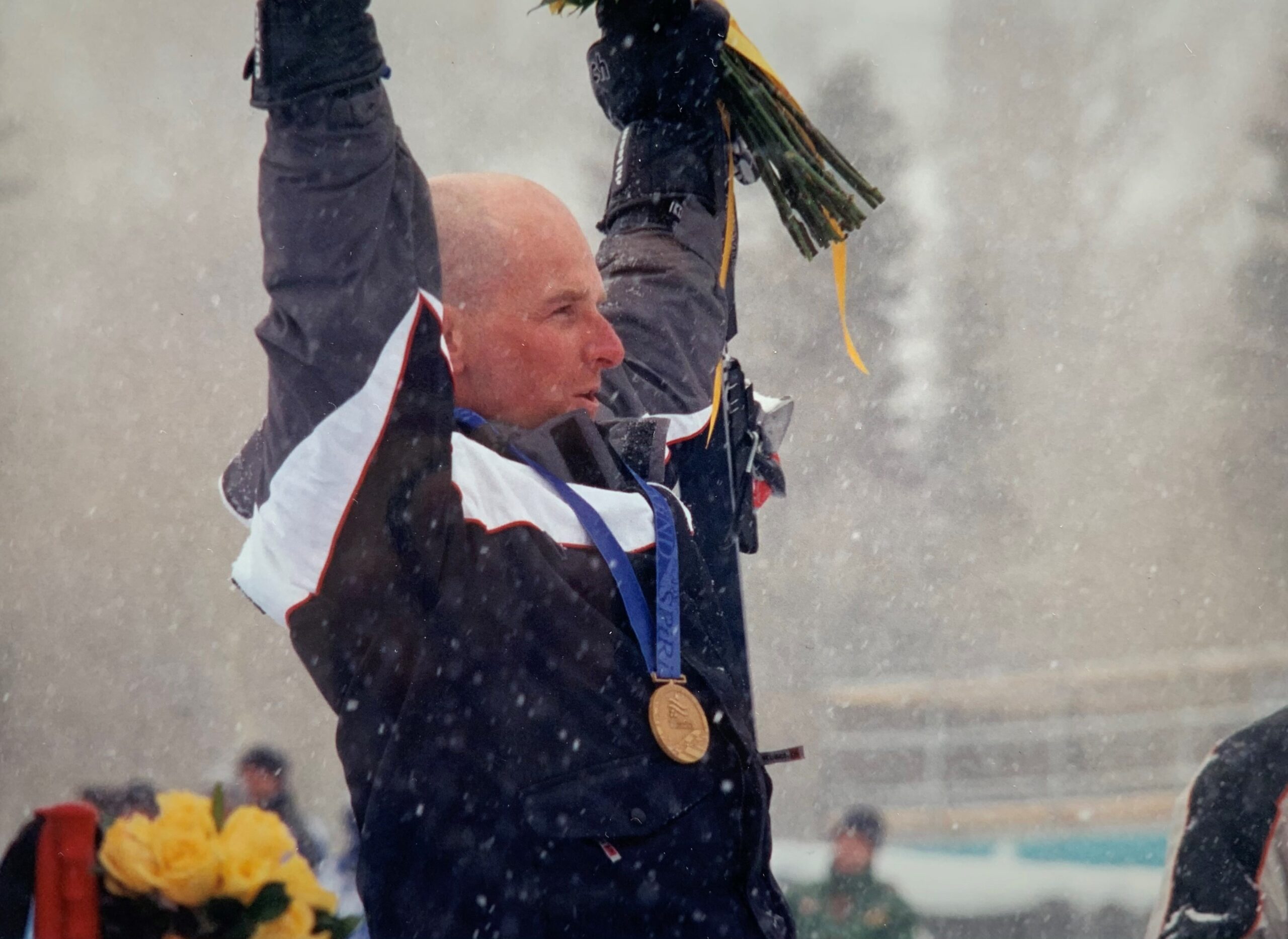
“My aim had been at least one, and I thought it would be in the Slalom [as opposed to the Giant Slalom], which is all about quick turning — I’d been having a really good season. In the first run, I was fast, but then my ski caught an edge and came off so I never even got to finish it. Funny how things work out.“
Meanwhile, he’d medalled in the Downhill on day one, the pressure of his goals evaporating. “Then I medalled again a few days later in the Super G, so by the time I got to the Giant Slalom, in which I had zero expectation of myself because I’d had a poor season, I had got myself in a very relaxed frame of mind and just had two really smoking runs! I thought, ‘Whoa, where did that come from!’ Getting to stand on the top of the podium — pretty special.“
Bayley retired on top. “Now I take my beautiful girls — 11, 13 and 15 — skiing and we go up and have fun on Porter Heights.“
For the past decade he’s been working at a Christchurch tree nursery — “a feelgood job I love“ — and keeps super-active with mountain biking, a bit of road biking and events like Le Race (an annual cycling challenge from Christchurch to Akaroa across hilly Banks Peninsula) and Motatapu (high country adventure racing). Bayley is also a committee member of Disabled Skiing Canterbury.
Bayley is also recently engaged and excited about embarking on the next chapter of his life with the loving support of his fiancé Jax and eldest lad Peita.
Two energetic dogs and landscaping at home keep life humming, too, but lately he’s also been starting to think perhaps he’s not quite done with Para alpine skiing and the thrill of racing, after all.
“It’s been an amazing chapter of my life and I’d like to do some volunteering to give back — so that could be my next journey.“
Story created by Storyation in partnership with Paralympics New Zealand.

